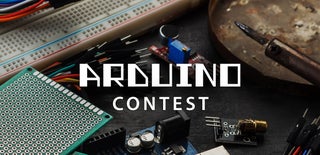Introduction: LED Neopixel Strip Volume Analyser
I had a spare Neopixel strip lying around and I thought it would be cool to make a spectrum analyser for my soundsystem.
I am assuming you are familiar with the arduino developing environment, if not then there are many tutorials out there.
Note:
This shows volume, NOT frequency.
But I might make a frequency one later.
Step 1: Gather Parts
You will need:
- Arduino (I used Nano, you can use others)
- 2x 330ohm resistors
- breadboard
- jumper wires
- LED strip (neopixels)
- 1000uf capacitor
- 10k potentiometer
optional:
- speaker
- audio jack
Step 2: Circuit
Construct the circuit as shown, if you want, you can build it on perfboard for a more permanent solution.
You can connect this straight to an audio source as well (shown in schematic) e.g. an amplifier output, just connect the wires to your other source instead of the audio jack. Using this method, you don't need the speaker because the wires are connected in parallel with other speakers anyway.
The potentiometer is for changing how high the LEDs go depending on the volume of the input. This is optional, if you don't want it then you can remove it from the code.
Step 3: Programming
Make sure you have the Adafruit Neopixel library installed.
If not, then open library manager (sketch-->include library-->manage libraries). Then search for 'Adafruit Neopixel'.
Click on the one shown and hit 'install'.
Next open the attached code, make sure the 'STRIP_LENGTH' is set to your strip length, select the board and port from the 'Tools' menu and upload.
Attachments
Step 4: Finished!
You can now impress people with your music volume analyser or just watch it with the music.
TROUBLESHOOTING:
-If the LEDs are all lit up with slight flickering then turn the potentiometer until they go down to the music
-If nothing is happening, make sure the audio source is plugged in and working
It may be a good idea to make a custom PCB from perfboard and mount them somewhere nice if it is to be permanent. See video of them working.
Attachments

Participated in the
Arduino Contest 2019













